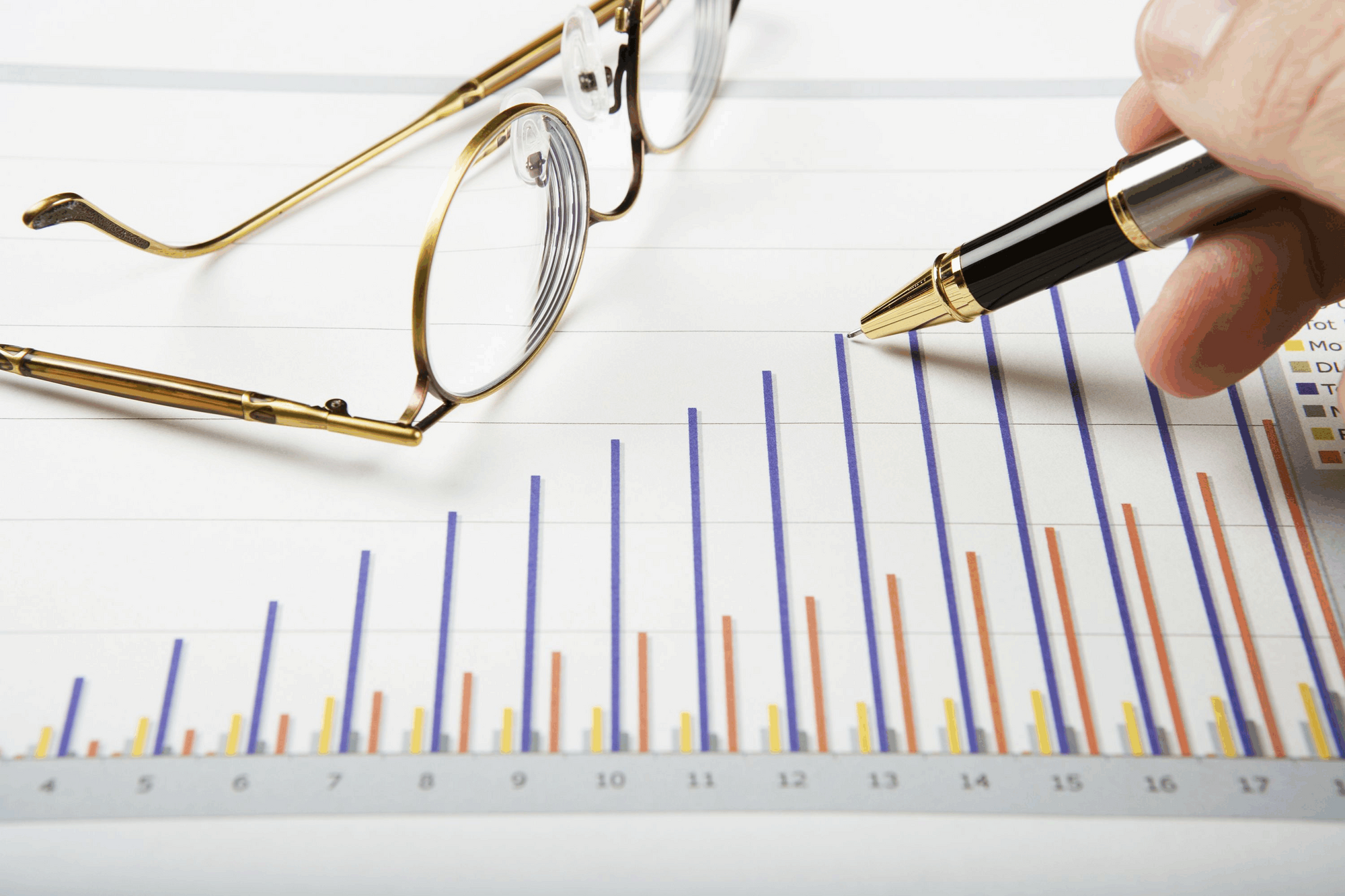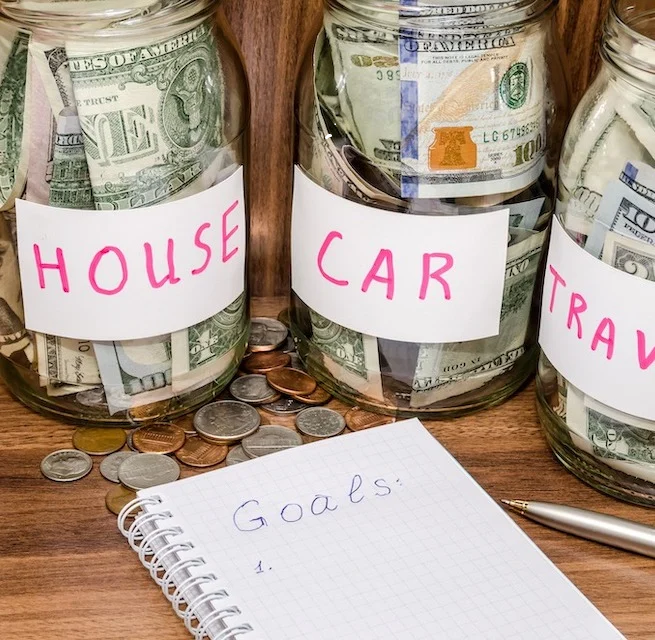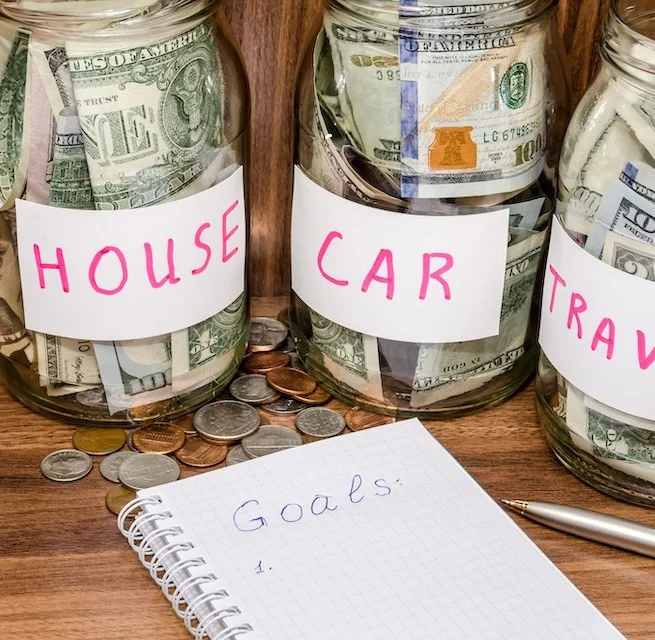Realm Economics
-
January 19, 2022 3:04 PM CST
Does inflation got you down? Inflation is governments way of monetizing debt. How are you protecting your investments, savings and your future?
This post was edited by Web Diva at February 21, 2022 6:12 PM CST January 24, 2022 5:56 PM CST
January 24, 2022 5:56 PM CSTIt would seem that the stock market will be going through a large correctional phase, hopefully that's all, however, the S&P fell below 200 last week, which freaked out investors and some of the big tech companies took on huge losses. Let's hope for a good bounce and the stock exchange will stabilize. This maybe a good time to review your investments
 January 26, 2022 2:17 PM CST
January 26, 2022 2:17 PM CSTThe financial markets had a bounce, but Bitcoin went down to $33,000, however, before closing got back to their $36,000 mark. Bitcoin is apparently down 50% since last November. Are you in the cryptocurrency market? The entire crypto market has shed more then $1 trillion since Bitcoin's all time high. Friends, crypto seems very volatile.
This post was edited by Web Diva at February 21, 2022 6:12 PM CSTFebruary 12, 2022 10:51 AM CSTK, I'm still trying to navigate where best to continue planning retirement investments. The business news makes looking at all of the options very confusing depending on where you source your investment news from, especially since we are all navigating through the Pandemic times and for those may also refer to the Great Reset. You have the fear mongering, "collapse is eminent" investment news, and then you have just general news, "stay the course", but then I'm pretty intuitive, and when you put all of the business and world news together it's not a really pretty picture. The business of inflation monetizes the governments debt. So where do we all fit in there with this inflation issue alone? If you are close to retirement, you have money saved, then all of a sudden, your savings isn't so much anymore because inflation just took away a little chunk of it's value? Investment funds, hmmm...scare me, any investment group can go belly up (Think- The Boiler Room Movie with Ben Aflick), then you have the "advisors" suggesting heavy metals because they are our hedge on inflation. Have you looked at the cost of Gold and Silver lately? Remember what happened in 2000 to people that had gold certificates or something like that? Then I ask, what about the firm you buy it from? Stable, stable forever? For me to invest, I would like to see a stable and consistent nation that stays set in their policies. Back to history, do you all remember what happened to Americans and their personal gold during the depression Era under Roosevelt?
February 28, 2022 9:12 AM CSTIs anyone watching the markets this week?
 May 15, 2022 10:58 AM CDT
May 15, 2022 10:58 AM CDTThat Giant Sound You Just Heard Was the Housing Market Starting to Crack
This is not a surprise; 2008 real estate market crash likely on steroids this time.
I also heard yesterday, that if you buy gold to hedge against inflation, that gold has not changed in value much since 2012 or a year close to that, which really made may take pause on using gold and silver.
Watch the markets, watch the news on digital currency (about 90% of the world banks are in on digital currency now), watch crypto currency trends, watch the fed and interest rates as they are manipulating the market because of inflation too. People that would normally be in the market to buy homes, can't now, because the homes are 50K upwards from what they used to be and buyers salaries can't keep up with the inflation.
May 15, 2022 11:22 AM CDTI neglected to add a final point to investing. Investing for your future can come in all forms. Sometimes you have a small fortune (or at least money for a rainy day) in your house and you don't even realize it, such as an old coin collection from your childhood, collectable star wars figures (mint in box, lol), same goes for figurines, dolls with their complete ensemble, trading cards, stamps or even that obscure water color painting you have in your house that's signed by a familiar name (maybe it's authentic?).
Saving any money is hard these days, particularly in these times of inflation. Right now it's all out, all you can do to just stay a bit ahead. Don't get discouraged, but maybe put a little plan together, no matter how small it seems. Planning for your future and protecting what you have is a good plan by itself.
July 13, 2022 9:38 AM CDTInflation, we get that; recession maybe on it's way. Is there any good news yet?
Inflation rose 9.1% in June, even more than expected, as consumer pressures intensify
July 13, 2022 9:42 AM CDTIf the inflation numbers don't stop rising; people are going to start snapping. People really need a break right now.
July 22, 2022 10:17 AM CDTRussia and China are brewing up a challenge to dollar dominance by creating a new reserve currency
I've been watching BRICS in development for a long time with grave concern.
BRICS will also be combining hard assets (e.g. gold backing) to their currency. If Russia and China additionally create their own reserve currency then our dollar is at consequential risks.
This post was edited by Web Diva at July 22, 2022 10:18 AM CDTJuly 23, 2022 3:16 PM CDT
When Money Is Tight, These 7 Resources Will Help Nearly Everyone
I don't think there isn't one of us that has not been affected by high gas prices, inflation, groceries costing a fortune and even our utility companies hitting us with large bills. I thought this article might be helpful or at least give some ideas.
July 27, 2022 1:26 PM CDT
Pending home sales fell 20% in June versus a year earlier as mortgage rates soared
Real Estate has been on a wild ride as far back as 2017, with homes with multiple bids and those with cash can outbid the others. Home's have also been valued at such higher prices too. I believe we are going to get into market correction territory in RE.
US home prices to plunge ‘substantially’ on ‘cratering’ demand: economist
August 9, 2022 10:36 AM CDT
How the Inflation Reduction Act might impact you — and change the U.S.
If you have been a little confused or perplexed by the new bill, The Inflation Reduction Act and were wondering how it might affect you, this is a good article explaining some of the details you may need answers too. Large Billion dollar Corporations will be affected by this bill substantially by new taxes. There are also a myriad of Green Renewable energy intensives. The bill is still undergoing revision, though passed both in the House and Senate. Not formally signed yet by the President, but likely will be soon as landmark legislation
November 9, 2022 11:05 AM CSTTesla Loses Valuation Race to Berkshire as Growth Stocks Sputter
The US stock market is witnessing the end of an era when richly priced tech companies with aggressive future growth plans could do no wrong. Rising interest rates are spurring investors to bid up value firms that offer stable cash flows in the here and now, while the relative resilience of the industrial and consumption cycle is proving a boon for steady and stable businesses.
This is what caught my attention in the above article, the fact that tech companies are becoming less resilient and reliable for investors. Why the change now?
“This is a great representation of slow and steady wins the race in the current environment,” said Arthur Hogan, chief market strategist at B. Riley Wealth. “Value has underperformed growth for the better part of a decade, but the tide has certainly shifted this year and likely will continue into next year.”
And this is what I just said under discussions for Meta, that slower determined paced growth is far better then forcing growth before it's mature enough or the product is ready.
Quoting myself: Grand ideas are part of being an entrepreneur, but also having humility, honesty and care for your employees and how your product is perceived should be tantamount.
This post was edited by Web Diva at November 9, 2022 11:07 AM CSTNovember 11, 2022 10:56 AM CSTSam Bankman-Fried steps down as FTX CEO as his crypto exchange files for bankruptcy
FTX investors fear their money is lost as crypto company collapses
Crypto Lender BlockFi Suspends Withdrawals in FTX Contagion
Maybe crypto currency isn't such a good idea....is this the beginning of the end?
This post was edited by Web Diva at November 15, 2022 5:57 PM CSTNovember 11, 2022 11:08 AM CSTFirst Came the Crypto Crash. Now Comes the Taxman.
The rout in cryptocurrencies worsened this week with the collapse of the offshore exchange FTX. With bitcoin recently down more than 60% in 2022, many crypto investors would surely like to forget about digital assets, at least for now.
That would be a mistake. The Internal Revenue Service hasn’t lost interest in cryptocurrencies, and investors need to focus on key tax issues before year-end.
New rules and enforcement actions are coming to ferret out crypto transactions that often went unreported in the past. There’s a bit of good news as well: This year’s painful selloff brings an opportunity for crypto holders to harvest losses to offset future taxes.
Here’s more to help investors make smart crypto moves in the next few weeks—and get ready for new IRS scrutiny.
Some thoughts on crypto-currency tax reporting by Laura Saunders.
This post was edited by Web Diva at November 11, 2022 11:09 AM CSTNovember 15, 2022 10:53 AM CSTFTX crash is eerily similar to the Bernie Madoff scandal, ex-regulator Sheila Bair says
In the span of just three years, Sam Bankman-Fried built FTX into a massive crypto exchange backed by marquee investors and valued at $32 billion. It took mere days for all of that to implode in a sprawling bankruptcy filing.
Sheila Bair, a top regulator during the 2008 financial crisis, told CNN there are eerie similarities between the dramatic rise and fall of Bankman-Fried and FTX and that of infamous Ponzi scheme mastermind Bernie Madoff.
What's really going with this FTX crash?
This post was edited by Web Diva at November 15, 2022 10:54 AM CSTNovember 27, 2022 11:29 AM CSTFTX confirms 'unauthorized transactions' as $1B in crypto reportedly vanishes
Analysts said millions of dollars worth of assets had been withdrawn from the platform.
"Following the Chapter 11 bankruptcy filings – FTX US and FTX [dot] com initiated precautionary steps to move all digital assets to cold storage. Process was expedited this evening – to mitigate damage upon observing unauthorized transactions," FTX U.S. general counsel Ryne Miller tweeted.
Cold storage refers to crypto wallets that are not connected to the internet to guard against hackers.
FTX is getting really big in the news. Do you think Crypto currency will soon have some strict regulations before the US puts out their own digital currency?
This post was edited by Web Diva at November 27, 2022 11:30 AM CSTJanuary 3, 2023 10:35 AM CSTIf you watch the markets like I do, you've probably taken notice that gold has now left the $1700 per troy ounce range and is now about $1850 per troy ounce.
Gold surges to 6-month high, and analysts expect records in 2023
Much of the 2023 outlook for global markets hinges on the trajectory of monetary policy as central banks ease off the aggressive interest rate hikes of the past year amid slowing economic growth and possible recessions.
What would be your predictions on Gold? Is this a temporary high due to the new year or is this a deeper trend because of the grim predictions of 2023 economic fails expected?
This post was edited by Web Diva at January 3, 2023 10:35 AM CSTJanuary 14, 2023 6:18 PM CSTElon Musk predicts a US recession next year that might last 18 months — and warns investors to be careful
https://www.yahoo.com/entertainment/elon-musk-predicts-us-recession-113015789.html
Welcome to the New Year. How are you preparing for 2023 financially?
This post was edited by Web Diva at January 14, 2023 6:19 PM CSTFebruary 11, 2023 9:11 AM CSTNew Biden Rule Allows Socially Conscious Investing by Retirement Plans so if you are an investor in mutual funds or rather any, then your due diligence might need to be more detailed in researching what companies are actual grouped in the fund you are considering. There are "safe" funds like Blue Chip and then their are volatile funds. Personally, not sure that there are any "safe" funds to invest in anymore?
President Joe Biden's administration on Tuesday reversed restrictions imposed under his predecessor Donald Trump on retirement plans considering environmental, social and governance (ESG) factors such as climate change and racial justice when selecting investments.
Note when this new rule will take effect:
The rule will make it easier for retirement plans to invest in socially responsible funds and companies, though it requires investment decisions to be based on traditional financial factors. The rule, which the department said covers plans that collectively invest $12 trillion, takes effect 60 days after it is formally published, which could be as soon as this week.
Direct Link to this article:
March 12, 2023 12:02 PM CDTMost of you that keep up with financial news may be aware that there were two bank failures this week, one bank from California, particularly known for tech start-ups, in Silicone Valley, the Silicone Valley Bank.
I find it difficult to understand how a bank ranked so high on Forbe's list last month and now has completely defaulted this month. How are we supposed to do our due diligence on our local, state and federal banks if our research leads to lists like this created from a financial institution with presumed credibility?
https://www.forbes.com/lists/americas-best-banks/?sh=4d64cd2cc0de
In early research on why this bank failed, I learned that banks can buy stocks, but they don't have to report the "health" of their stocks. I find this in conflict with the basic premise of why we look at the balance sheet of the health of a company. Why isn't stock performance reported in a banks balance sheet?
https://finance.yahoo.com/news/silicon-valley-bank-imploded-single-100000239.html
Just a reminder, the FDIC only protects funds up to 250K in the event of a bank collapse.
March 12, 2023 12:21 PM CDTThe auction has already begun on the SVB bank.
Silicon Valley Bank collapsed into FDIC receivership on Friday, after its long-established customer base of tech startups grew concerned and yanked deposits. At the end of last year, SVB had more than $175 billion in deposits — the vast majority of which are uninsured — and $209 billion in total assets.
March 19, 2023 10:19 AM CDTIf you've been watching the markets and financial news then you have been probably wondering since the Fed saved the SVB bank and made an exception to the FDIC safety net for depositors that would the Fed then do this for all of the banks that fail in the future? My question has been are we all FDIC insured over $250K and don't have to worry or was this an isolated case?
I have found the answer for you in a recent quote from Janet Yellen.
Under questioning, however, Yellen admitted that not all depositors will be protected over the FDIC insurance limits of $250,000 per account as they did for customers of the two failed banks.
Uninsured deposits, she said, would only be covered in the event that a “failure to protect uninsured depositors would create systemic risk and significant economic and financial consequences.”
April 2, 2023 11:47 AM CDTHave you ever wondered which countries hold the most debt? Are you curious about how it all works and fretting a bit about digital currency on it's way?
Here's a great article with charts and graphs for the super finance geek in you to feast upon.
Today, America owes foreign investors of its national debt $7.3 trillion.
These are in the form of Treasury securities, some of the most liquid assets worldwide. Central banks use them for foreign exchange reserves and private investors flock to them during flights to safety thanks to their perceived low default risk.
Beyond these reasons, foreign investors may buy Treasuries as a store of value. They are often used as collateral during certain international trade transactions, or countries can use them to help manage exchange rate policy. For example, countries may buy Treasuries to protect their currency’s exchange rate from speculation.
https://www.visualcapitalist.com/which-countries-hold-the-most-us-debt/